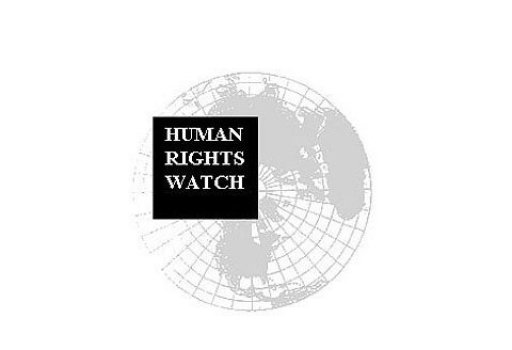CAIRO: The saying “there are two sides to every story best explains the situation of HIV/AIDS in Egypt.
“Egypt is one of the lucky countries which has only a few thousand HIV patients, however, because it has this small number, it is particularly challenging for those people to live in the country, said Jeffrey O’Malley, director of the HIV/AIDS Group at the United Nations Development Program (UNDP).
HIV’s prevalence in Egypt is considered to be relatively low, with around 0.02 percent of the general population, which is approximately 9,213 people, suffering from it. But preconditions for a wider epidemic exist, according to the UNAIDS office in Egypt.
High risk factors create an ideal environment for the rapid spread of HIV.
These factors include overpopulation, especially in the age bracket of 15-24 who constitute 50 percent of HIV patients, poverty, illiteracy in the general population particularly among women and a weak health system despite huge infrastructures.
Defining the disease
“There is a difference between HIV and AIDS, said Dr Wessam El Beih, UNAIDS country officer in Egypt.
“Human Immunodeficiency Virus (HIV) is a virus a person is able to live with, while Acquired Immune Deficiency Syndrome (AIDS) is a clinical state and is the last state of HIV where the immune system is totally destroyed, she explained.
“There are no changes in the physical appearances of a person who has HIV and with the necessary treatment they can prevent reaching the AIDS state, she explained.
There are many common misconceptions surrounding HIV in Egypt, particularly regarding how it is communicated, which results in discriminatory behavior towards HIV patients.
There are three ways HIV can be transferred; either through unprotected sexual intercourse, by blood transfusion or using an infected injection or from a mother to her fetus.
In the Arab world, the majority of HIV patients are infected through unprotected sex and contaminated injections.
Vulnerable groups, who are at high risk of catching HIV, include prostitutes, drug users (through injections), homosexuals, refugees, street children and prisoners. “However, none of these are closed groups, added El Beih.
This is why a stigma surrounds HIV-positive people.
“[Some people] in Egypt still think that we are getting HIV from abroad and that the problem does not exist in Egypt. However, 80 percent of women get it from their husbands, said El Beih.
Being HIV-positive in Egypt
“Just like most Egyptians, a misconception I’ve always had was that an HIV patient leads an immoral life as the virus is only transferred through intercourse, an HIV-positive Egyptian in his late 20s told Daily News Egypt, on condition of anonymity.
“However, when I knew that I’m HIV positive I joined groups and learned more about the virus and the many ways a person can get infected, he said.
The most difficult challenge he faces is when he visits a doctor. “I can’t tell a doctor that I have HIV or they will refuse to treat me, he said adding that even if he is going to undergo a standard surgery, he can’t tell the doctor or he’ll be left to die.
He has been living with the virus for eight years. “Things have remarkably changed since 2000; everyone is now openly talking about HIV and is addressing the problem. We are getting endorsements from key public figures such as actor Khaled Aboul Naga. There are many campaigns and people are getting more aware and educated everyday, he explained.
“In the future, we want more media coverage and we also want to see more television series and movies with a positive portrayal of HIV patients, he said. “We want the media to support us and spread the message the an HIV patient is just like anyone else, like a person with Hepatitis C or cancer for example, and we get rid of the stigma they’ve associated us with, he added.
Better safe than sorry
“Prevention is always better than treatment, said O’Malley. “The most important aspect Egypt has to work on is the prevention of HIV.
O’Malley explains that they have a multi-sector approach in dealing with HIV in Egypt, which includes working with the Ministry of Health. “I am sorry to say that many African countries, such as Botswana, are far more advanced than Egypt when it comes to HIV, he said.
The approach also includes working with religious leaders in order to combat the stigma that HIV is transferred through illegitimate sexual intercourse. “All religions, whether it is Islam, Christianity or Judaism, all recognize that people make mistakes and everyone deserves to be forgiven and supported, [therefore] even if these people made a mistake we should stand beside them, he explained.
The World AIDS Campaign has two major objectives for 2008/2009. It aims at calling on decision makers, especially those in the health sector, to improve access to quality care, support, and treatment for People Living with HIV (PLHIV).
It also highlights individual action at the community level including prevention, accessing services and combating the stigma and discrimination associated with HIV and AIDS.
Many goals fall under these objectives, one of which is to educate students at medical schools about HIV/AIDS. “AIDS is nonexistent in the syllabi at medical schools, it is just something ‘in the book,’ according to Ahmed Khamis, program officer at UNAIDS Egypt.
On Friday Nov. 28, Egyptians from all walks of life came together and celebrated the World AIDS Day at El-Gezira Youth Center. The event featured many activities aimed at educating the participants about AIDS.
“Prevention, treatment and support, without these factors HIV/AIDS will always stay in the underground, said El Beih.
